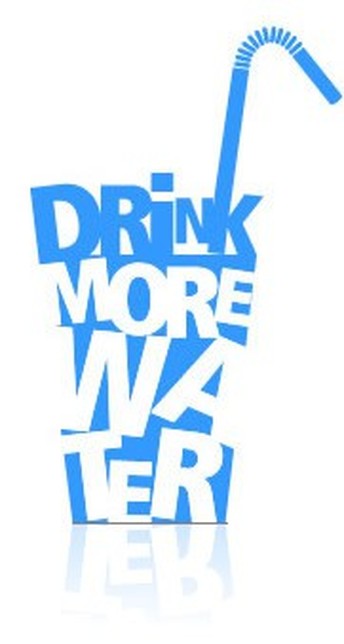
Water is a wonderful way to help you feel your best. Unfortunately, too many people overlook the power of this essential nutrient. Perhaps it’s your turn to give water a try?


Water is a wonderful way to help you feel your best. Unfortunately, too many people overlook the power of this essential nutrient. Perhaps it’s your turn to give water a try?
Here are some hydration facts that will help keep you moving, courtesy of active.com.
While water is best, all fluids count, as do foods that have high water content.
For example:
Your body cannot survive without sufficient water, as noted by the fact that athletes die from dehydration. Water is the solvent for your biochemical reactions.
Water is required to moisten food (saliva), digest food(gastric secretions), transport nutrients to and from cells (blood), discard waste (urine), and dissipate heat (sweat). Water is a major component of the muscles and organs; about 60 percent of a male’s body weight and 50 percent of a woman’s body weight is water.
Water constantly moves through your cells. About 4 percent to 10 percent of your body-water gets replaced every day with “fresh” water. For example:
This formula estimates the ratio of water to muscle and fat. Hence, if you use a Tanita Scale or Omron device, be sure to maintain adequate hydration. If you are dehydrated, you’ll end up with an inaccurate (higher) estimate of body fat.
This occurs during normal metabolic processes. During a marathon, a runner’s muscles can produce that much water over two to three hours. When muscles burn glycogen, they simultaneously release about 2.5 units water for every 1 unit of muscle glycogen; this helps protect against dehydration.
Although once thought to have a diuretic effect, current research indicates coffee (in amounts normally consumed) hydrates as well as water over a 24-hour period. That is, after drinking coffee, you may urinate sooner, but you will not urinate more than you consume.
Army research on caffeine and dehydration confirms coffee is an acceptable source of fluids for athletes, even during exercise in the heat. Hence, coffee and other caffeinated beverages such as tea or cola count towards your water intake.
If you are a 150-pound athlete, you’ll start to feel thirsty once you’ve lost about 1.5 to 3 pounds of sweat (1 percent to 2 percent of your body weight). You are seriously dehydrated when you have lost 5 percent of your body weight.
The evaporation of 1 liter (about 36 oz.) of sweat from the skin represents a loss of about 580 calories. Sweat keeps you from overheating during exercise and in hot environments.
To determine how much water you lose when you sweat, weigh yourself (with little or no clothing) before and after one hour of hard exercise with no fluid intake. The change in body weight reflects sweat loss. A one-pound drop in weight equates to loss of 16 oz. of sweat. A two-pound drop equates to 32 oz.—that’s 1 quart. Drink accordingly during your workouts to prevent that loss.
The water outside the cells is rich in sodium, an electrolyte that works in balance with potassium. Potassium is an electrolyte inside the cells. Sweat contains about seven times more sodium than potassium, hence sodium is the most important electrolyte to replace during extended exercise.
Athletes who lose more than 2 percent of their body weight (3 pounds for a 150-pound athlete) lose both their mental edge and their ability to perform optimally in hot weather. Yet, during cold weather, you are less likely to experience reduced performance, even at 3 percent dehydration.
Three to 5 percent dehydration does not seem to affect muscle strength or performance during short intense bouts of anaerobic exercise, such as weight lifting. But distance runners slow their pace by 2 percent for each percent of body weight lost through dehydration. Sweat loss of more than 10 percent body weight is life threatening.
There is also no scientific validation of theories that excessive water intake will improve weight loss, remove toxins, or improve skin tone.
No scientific evidence supports the “eight glasses per day” rule, so you can simply drink in response to thirst. You can also monitor the volume of your urine. If your urine is scanty, dark, and smelly, you should drink more. If you have not urinated during your work or school day (8 a.m. to 3 p.m.), you are severely under-hydrated.
Quench your thirst, and feel better while doing so. Place an order to be delivered to your home or office at our website.
Leave a comment